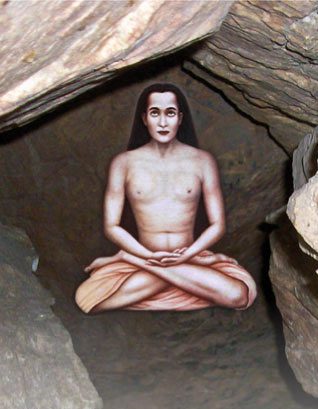In the year 203 A. D. A boy named Nagaraj was born in what is now the seaport town of Porto Novo on the eastern coast of India. While still a youth he was kidnapped by a Pathan and taken north to Dacca. He was later released and migrated to Benares where he shone as a Sanskrit scholar of great eminence.
Discontent with this early success and destined for a greater end, he sailed by boat to the powerful shrine of Kathirkamam on the southern coast of Lanka. For 18 months he plunged into meditation where, with his astute intellect, he analyzed the different philosophical systems threadbare. Drawing inspiration from the great Siddha of Science, Boganathar, he was able to appreciate and understand the full significance of Siddhantha Yoga and Soruba Samadhi and he accepted the challenge of attaining this mystic goal, supreme. Following the inner call, he wondered throughout South India and was extremely fortunate to be initiated into the mysteries of Kundalini Yoga by the great Tamil Siddha, Agastya Maharishi at Courtrallam. Now retiring to a lonely Himalayan cave, he remained absorbed in intensive Yogic sadhana for years at a stretch, finally to emerge LAUGHING AT THE LIMITATIONS OF DEATH.
The immortal Babaji made his own contributions to the nucleus given by Sage Agastya, renamed it “Kriya”, and has retained his form through the centuries tapping many, speaking to few and materializing to give darshan to his saintly chosen. For centuries he worked behind the scenes as the source of inspiration and guidance to past Kriya Masters like Adi Shankara, Kabir Das, Lahi Mahasaya and many others.
Thus He is the climax of the Eighteen Yoga Siddhas named in the Tamil Siddha tradition, which includes Thirumoolar, Ramadevar, Kumbamuni, Konkanavar, Sattamuni, Karoovurar, Sundaranandar, Valmiki, NandiDevar, Paambati, Boganathar, Macchamuni Patanjali, Dhanvanthri, Goraknath, Kudambai, Idaikadar and Kamala Muni. The great immortal yoga master lives today in the Himalayas, where he has been working for nearly two millennia to usher in the great golden age known in yoga as the Dwapara Yuga. Babaji is considered to be an incarnation of Lord Muruga, in a body that fittingly pays homage to him as lord of eternal youth and beauty.

